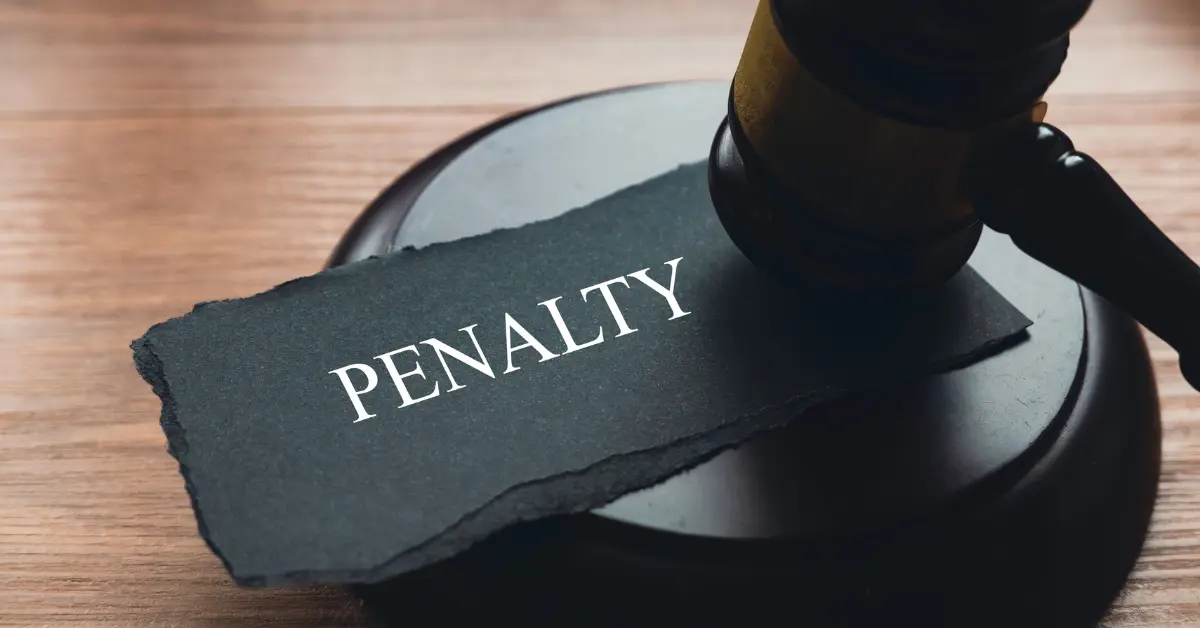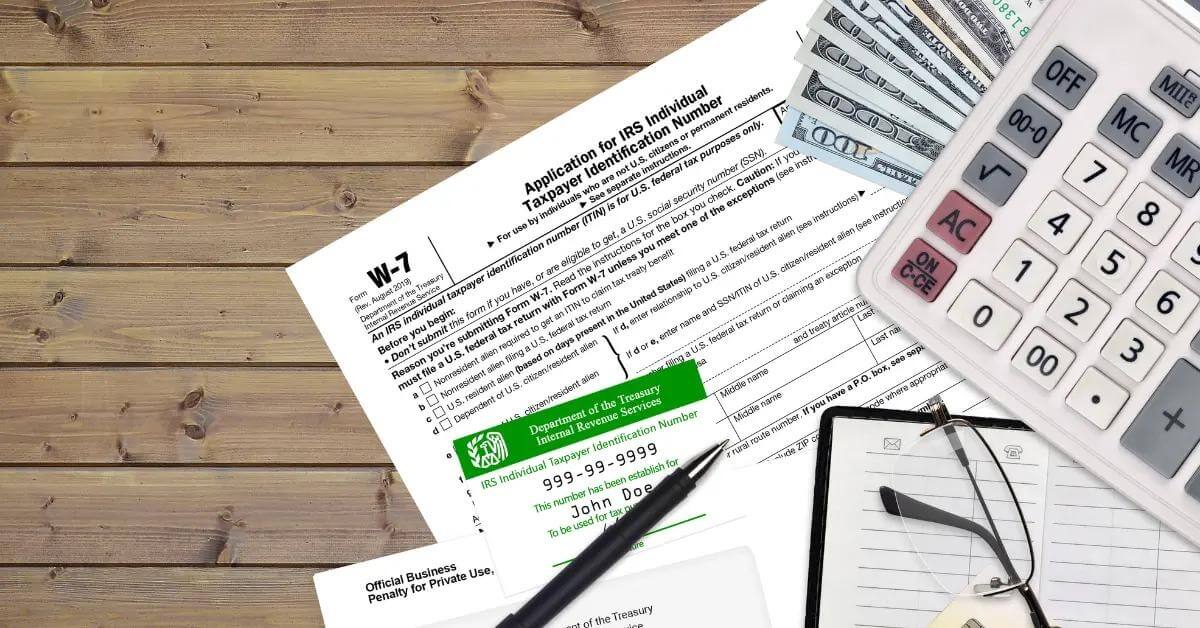
Bouncing a Check to the IRS: What Now?
Benjamin Franklin said, “Nothing is certain but death and taxes.” This means that if you’re thinking about eluding the IRS or avoiding making a payment — think again. It is a serious crime to evade your taxes, punishable by fines, back taxes, and possible jail time. You will always eventually need to pay what you owe, whether you intentionally skipped out on your taxes or accidentally miscalculated funds.
Maybe you merely bounced a check to the IRS, which can be alarming. You have options, however. A fine may be in your future, but you can recover from any lapse in judgment or insufficient payment. Here is your guide for what to do about a bounced check to the IRS.

Don’t Panic
First thing’s first: Do not freak out. The IRS will not come knocking on your door the minute your check bounces. The agency will, however, expect you to make good on your payment. Its first course of action is to send you a letter via postal mail. This is known as a Letter 608C, Dishonored Check Penalty. Your bank will also notify you as they would with any bounced check, and it is essential to communicate with them.
Most banks charge a nominal fee for bouncing a check. The IRS will tack on a penalty as well.
Anyone who has realized they bounced a check to the IRS can determine the cause and decide how to handle it based on your situation. Talking to a tax expert as soon as this happens is always a good idea.

Reasons Your IRS Check Bounced
Determining why your check was returned is the first step. The most common reasons include the following:
Insufficient Funds in Your Account
You can do a few things if a lack of funds is the reason for your bounced check. The smartest move is to deposit the necessary money immediately (if you have it). This shows the IRS you had good intentions, even while that might not cancel the penalty fee from your bank.
You Filled Out the Check Incorrectly
Check to ensure all details are accurate on your check, including the amount and the date. Any error or missing information could cause the check to bounce. A missing or illegible signature can often be the culprit.
Damaged Check
The check may have gotten damaged in transit, making it illegible.
You can sometimes argue your way out of the IRS bounced check fee, but even if you can’t, the penalty is minimal — 1% to 2% of the amount of the check. Be sure to cover this amount when you resubmit your payment.

Will My Bounced Check Resubmit?
A bounced check can be instantly resubmitted a second time in many cases, which is good news for you. You thus need to get the money to the bank ASAP if your check was returned for nonsufficient funds (NSF). Sometimes the clearinghouse your bank uses will resubmit your check, even while the IRS itself won’t. Check with yours to find out if the check will submit a second time. The NSF penalty should be deferred if the payment does clear after being resubmitted.
You will need to mail a second check to the IRS immediately if your check doesn’t automatically resubmit. This check will need to include the penalty amount. Ensure you have sufficient funds and include the correct amount to avoid any further issues.

What Penalties Are There for Bouncing a Check?
Bouncing a check is inconvenient and embarrassing, but it happens to most people at some point, and it’s not the end of the world. You will, however, incur penalty fees from both the IRS and your bank. Here are a few things to expect:
Bank Penalty Fees for Bounced Checks
Every bank handles bounced checks and insufficient funds differently. You unfortunately get fined even if you’re on the receiving end of a bounced check, leaving neither party with a smile on their face. You can expect a bank penalty fee of $27 to $35 if you write a bad check to the IRS.
Other Bank Fees
The check recipient can also charge your bank a fee ranging from $20 to $40 or a certain percentage of the check amount, so you can get hit with fees from several places.
IRS Penalty Fees for Bounced Checks
The IRS calculates bounced check penalties differently, depending on the check amount.
The fee for checks up to $1,249.99 is $25 or the check amount (whichever is the lesser amount). Checks more than $1,250 incur the penalty of 2% of the check amount. This means that a check between $25 and $1,250 will incur a penalty of $25.
It is almost impossible to avoid these penalties for a bounced check to the IRS, so be prepared for them. You may want to contact your bank to see if there is anything additional they can do to help in this situation, or talk to a financial professional who is familiar with the IRS.

What to Do if Your Check to the IRS Bounced
It is crucial to act right away when you receive an IRS returned check. What do you do next? Here is your step-by-step guide on what you should do if this happens:
Identify the Reason
You first and foremost need to know what happened with the check. This is always going to be your first step. Check your accounts and check the details provided on the check itself.
Deposit Funds
Next, deposit sufficient funds into your account if possible. The check may be resubmitted if it is returned for NSF, so this is an immediate step you need to take in case the clearinghouse tries again.
Call Your Bank
Give your bank a call to make sure the check will go through a second time after you have deposited the money. Ask them if you will incur a fee from them or if it could be waived this time if it’s your first bounced check.
Assess for Bank Errors
Sometimes the IRS may waive a penalty if there was a bank error or mistake beyond your control. Provide all details about what happened to the IRS and ask them to waive the penalty if applicable. You must request a penalty abatement in writing to the IRS.
Calculate Your Penalty
Use the information in the section above to calculate your IRS penalty. Remember that if the clearinghouse resubmits your check and you have sufficient funds in your account, you will probably not have to pay the IRS dishonored check penalty.
Send a New Check
You will need to send a new check to the IRS right away if your initial check is not resubmitted. This check needs to include the penalty amount in addition to the original amount owed.
Think Through Alternatives
Sometimes you may not be able to make the payment you owe right away. You have options in this case, including a payment plan, which is discussed more in the next section.
Note that your bounced check to the IRS may have caused you to be late in submitting your payment for your annual tax return or estimated tax payment. This could lead to an additional late fee and extra interest that you need to submit as soon as possible after the IRS notifies you of the amount. Fees and penalties can quickly add up, so dealing with these matters right away is a must.

What Happens if I Can’t Cover the Payment?
You can only hope that your bounced check to the IRS was merely a mathematical error on your part. Maybe you forgot about an automatic withdrawal from your checking account or that purchase you splurged on last week. There are many reasons why your account may have had insufficient funds when the IRS tried to cash the check.
You need to make good on your payment, no matter why your check was returned for NSF. You still have options, however, if you owe the IRS money but can’t pay it upfront. Here is what to do when you can’t afford the payment:
Be Honest
The worst thing you can do is lie to the IRS about your situation. A letter detailing your reason for bouncing a check, being late on your taxes, or not paying enough upfront may convince the IRS to reduce penalties and interest. Be sure to use the term “abatement” in your letter, since this is how the IRS refers to this situation.
The IRS may also be forgiving if you unknowingly underpay. Say that you based your tax payments this year on previous years, but you end up owing more. The IRS often won’t charge you a penalty, as long as you pay by the tax deadline.
Determine a Payment Plan
The IRS is a relatively reasonable organization, despite popular belief. They will usually help you make good on what you owe if you don’t try to dupe them. Paying owed money to the IRS by April 15 is the way to go if possible, because you will avoid all late fees and interest. A payment plan is a viable option, though, if you can’t make that happen.
A short-term payment plan doesn’t incur any fees (unless you use a credit card). You’re agreeing to pay the total amount owed within 120 days by using this payment plan option. A long-term payment plan (where you pay in more than 120 days using automatic withdrawals) costs the following:
- Apply online: $31 setup fee
- Apply by phone, mail, or in-person: $107 setup fee
A long-term payment plan that includes monthly installments costs $149 online and $225 through other means. There are also low-income payment options available if needed.
The good news is that you have a couple of options if you find that you can’t afford what you owe the IRS. A bounced check can make these situations trickier, but if you communicate with the IRS, they will usually find a way to work with you.
You may also want to talk to a tax professional about your situation if you find yourself dealing with these matters.

Your Go-To Team for Dealing With the IRS
Silver Tax Group is here to help, no matter what tax issue you are trying to manage. Many things can go wrong when doing your taxes, but we have a team of tax pros with experience defending clients against IRS penalties and other actions.
Reach out to Silver Tax Group to speak to a tax expert if your IRS check bounced or you are having trouble making your tax payments on time. We will help you find the right solution.








